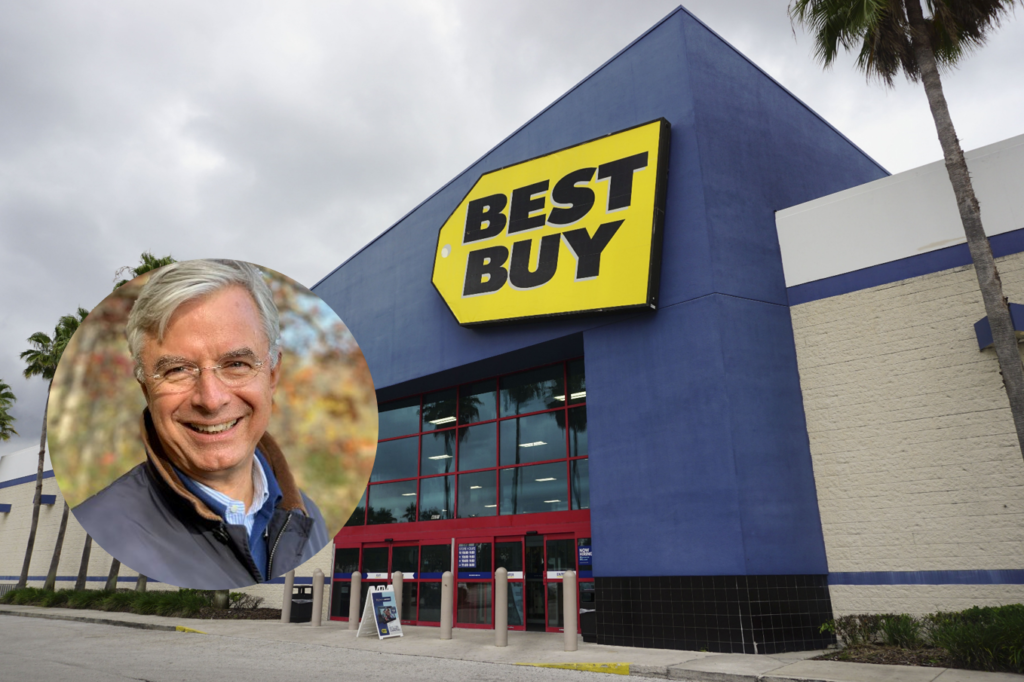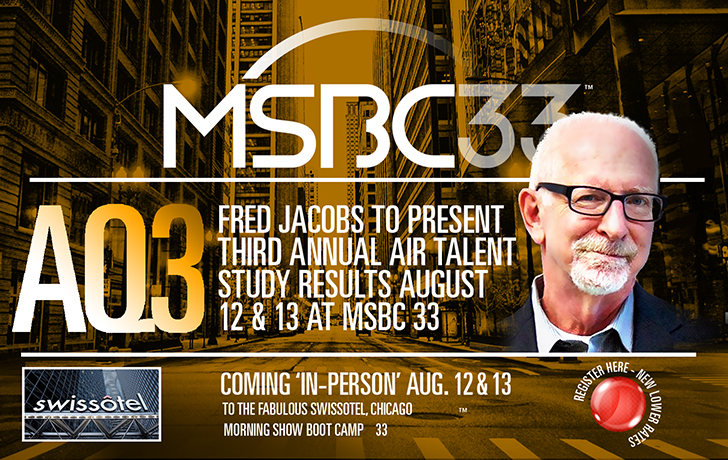
Earlier this week, Jeff Bezos left his baby, Amazon, to boldly seek out new worlds with a trip into space this summer. As the founder and CEO of Amazon, Bezos created what is inarguably the most successful company in the world.
Not to worry. His successor is long-time Amazon exec Andy Jassy. And as the newly appointed executive chair, Bezos will be close by.
The final figures are daunting. The company itself is worth more than $1.6 trillion. Bezos himself emerges as the world’s richest man. His assets now total $203 billion.
There’s Amazon Web Services (AWS), Amazon Prime, and e-commerce in general, making it highly challenging to compete with the company, whether you’re a small retailer or a global retail giant.
So, let’s leave the little guy aside, and look at how Best Buy has fared up against the Amazon juggernaut.
Hubert Joly joined Best Buy as CEO in 2012, determine to reinvent the company and the brand. Here’s how he explained it to Retail Dive‘s Ben Unglesbee:
“A lot of the advice I was getting at the time was ‘cut, cut, cut’ and ‘close stores, fire people’ – as if people were the problem.”
Instead, Joly took a different approach. Strategically, he studied Amazon strengths and matched them: price point, the experience, and shipping speed.
Then Joly placed bets on unique aspects to Best Buy – upgraded stores, merchandise pickup, and the Geek Squad among them.
But it was his commitment to his people in what he refers to as a “very human-centric turnaround” that made a discernable difference.
And that meant adhering to a simple action that guided Joly’s decision making:
“Listen to the frontline. They had all the answers.”
By leaning on his existing staff , Joly was able to cobble together a strong team at the top, rather than firing people and downsizing the company and its resources.
In thinking about Hubert Joly’s story, it very much applies to radio – an industry facing considerable competition from many corners, including trillion dollar companies like Google, Facebook, and even Amazon.
While radio was able to get most operational questions easily answered during the ’80s and ’90s, the digital landscape has upended many traditional media outlets, including many radio broadcasting companies. There was once a standard playbook, but it has been replaced by groups of radio companies hacking out their own turf.
While many radio broadcasters are now actively test piloting a wide array of digital strategies – web services and design, podcasting, SEO and SEM, streaming, digital agencies, and event marketing – there is no longer a template for what to do when the competitive waters are roiling. Every broadcaster is plotting out their own unique game plans.
And that brings us to Hubert Joly’s strategy – listening to his frontline workers, the ones wearing those familiar blue shirts in the stores. They represent the customer contact point or as it’s better known, the tip of the spear. They are the crucial cog in the changing ways consumers are price comparing, shopping, and buying stuff.
Joly notes Best Buy’s turnaround was accomplished by “addressing key human needs, putting people at the center and creating an environment where you can unleash human magic.”
And it all started with connecting with his boots on the ground – salespeople, stock workers, and the Geek Squad to hear their stories about what Best Buy needed to do to overcome its Amazon challenge, while forging its own path to success.
That begs the question why broadcast radio execs don’t try that very same tactic – checking in with its frontline staff. That means the people on the air, creating and executing the station’s sound each and every day.

They’re the ones talking to listeners on the phone, interacting on social media, and engaging at station events. They may not be privy to all the latest research data, but they are the station’s boots on the ground – the main conduit for audience connection.
Too often, we treat our talent off the air the way we do when they’re behind the mic – encouraging them to speak as little as possible.
That’s proving to be a dubious tactic in all respects. It makes their on-air performance bland and predictable. And it represents a lost opportunity to learn from those behind the mic.
This is not to suggest they’re sitting on the magic formula for success. Some give little or no thought to the competitive intricacies in the market, instead focusing on themselves. Others just don’t have a taste for the daily combat that defines a radio battle.
But I talk to many others – in person, on social media, and around this blog – who are very engaged, thinking about what they’re doing, what they’re being told to do, and what they could be doing to be more a part of the solution.
 To that point, AQ3, our research study for and about air talent here in the U.S. on commercial radio launches today. This is the third study in the series (we took last year off), and it is probably the most important because of the ripple effects of COVID.
To that point, AQ3, our research study for and about air talent here in the U.S. on commercial radio launches today. This is the third study in the series (we took last year off), and it is probably the most important because of the ripple effects of COVID.
We’re going to take the collective temperature of air staffers around the country, in collaboration with Don Anthony’s Morning Show Boot Camp, set for next month in Chicago.
Once again, we will have a pu pu platter of questions for our air talent respondents, including new queries about work from home, station culture, and how many hats talent are now wearing in their companies.
But a key question in the survey is near the end. It is open-ended, inspired by Hubert Joly:
“Broadcast radio in the U.S. is being challenged on many competitive fronts. If you could have face time with your owner or CEO (without fear of punishment or retribution), what would you tell them? “
What will we get from this broad question? I don’t know, but I’m hoping for considered, thoughtful ideas for radio broadcasters that go beyond expanding the playlist and decreasing spot loads.
If we “strike gold” with the question, we will publish the results and make verbatim comments available to one and all.

I’ll be presenting the top-line results from AQ3 at Boot Camp on Thursday, August 12th. Hope to see you there. These are radio’s frontline workers, and we hope they have important ideas to discuss.
 The truly talented ones are gifted storytellers. We hope they give us both barrels, taking the time to let us know how the industry can be better equipped to face the challenges ahead.
The truly talented ones are gifted storytellers. We hope they give us both barrels, taking the time to let us know how the industry can be better equipped to face the challenges ahead.
We could use some entertaining, compelling, and thoughtful stories right about now.
The last thing we need is for radio to be in the red.
For information on Morning Show Boot Camp, August 12-13 in Chicago, click here.
To take the survey, you must be on the air (or a producer) on commercial radio airwaves in the U.S. If you’re currently out of work, but were on the air at any point in 2019, we’d like you to take AQ3 as well. Access the survey here and feel free to forward it to other members of your airstaff and/or friends and colleagues around the country.
- What To Do If Your Radio Station Goes Through A Midlife Crisis - April 25, 2025
- A 2020 Lesson?It Could All Be Gone In A Flash - April 24, 2025
- How AI Can Give Radio Personalities More…PERSONALITY - April 23, 2025




Sometimes the smartest people in “the room”—
Aren’t even in the room.
True that. It’s weird how they are so often excluded by these important strategic conversations.
Staff engagement is key in any business. If your staff isn’t excited or passionate about the business, why should the customers care?
That said, radio has been dying since the suits got involved and sucked all the money away from the talent. It’s all about corporate profits at the expense of front line workers. Yes, companies need to make a profit but the pandemic has shown us that it is the front line workers who keep customers coming back.
By embracing automation, radio has turned it’s back on a lot of people who want to engage with them. Requests, phones and social media outside business hours are abandoned. Where will the next generation of listeners come from if they have no sense of connection to their local station?
John, that was remiss of me. Public radio could benefit just as much having frank conversations with talent. Thanks or the nudge.
Great piece and an equally terrific survey. For us frontliners, it’s much appreciated.
Two thoughts I didn’t include:
Give long-time air talents who’ve been let go a brief moment to say goodbye on-air if they never had that chance and if they kept it positive. Or at least let them do so on the station’s social media sites with an approved note to listeners. Why build up relationships with audiences just to “ghost” em at the end?
And the #1-with-a-bullet complaint from rock listeners young & old on the phones AND in-person at station events?
“There’s so much great rock by (artist)—why don’t you guys play more of it instead of these same 5 songs over and over?” Never had a good answer. Is there one?
Good questions both, Gary. On your first point, not only does talent deserve a respectful good-bye, but so does the audience.
The second point is dicier. What might work for one brane may not work for another. I’ll all about keeping it tight, but leaving room for some “chocolate chips” now and again in special, feature, request programmming.
But it’s universal. Back at WRIF in the 80s, I would host our Sunday night talk show 2-3 times a year – “Ask the PD.” I remember a guy called in one night, complaining we played the same three Jethro Tull songs over and over again. I counted, and we actually had something like a dozen songs in rotation. He was still unhappy.
Thanks for writing in.
“Listen to the frontline. They had all the answers.” Yes, “boots on the ground”….. So true!
Appreciate it, Max.